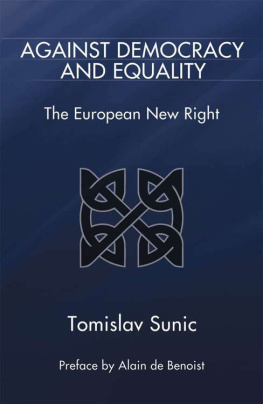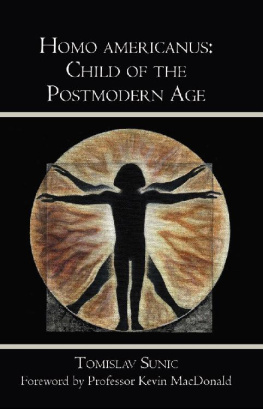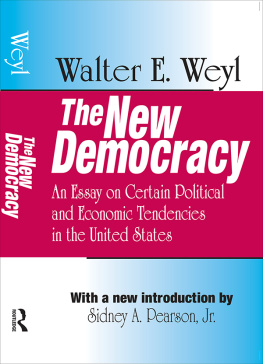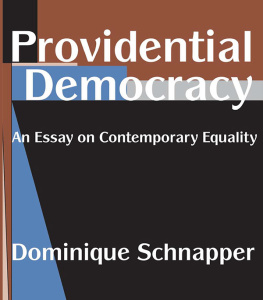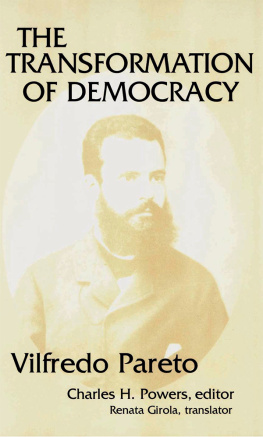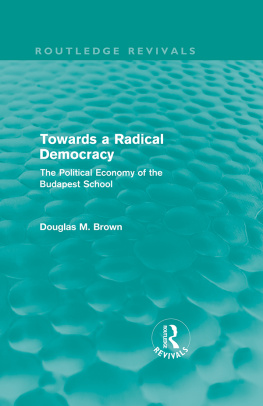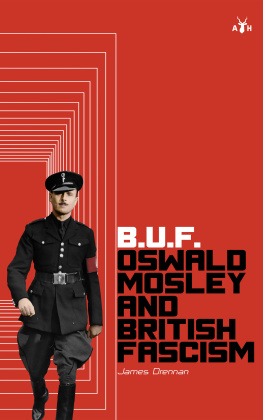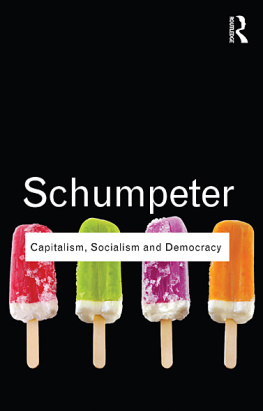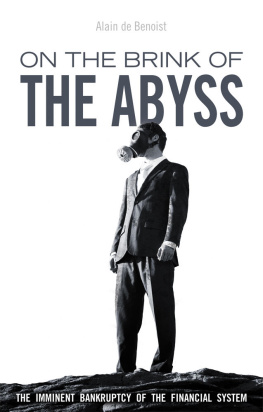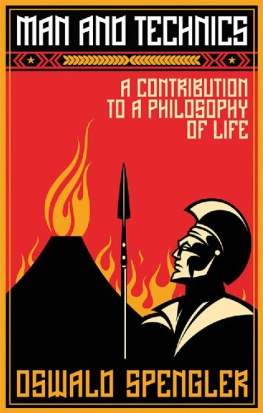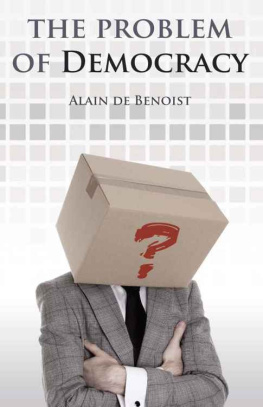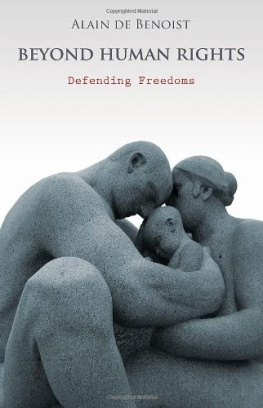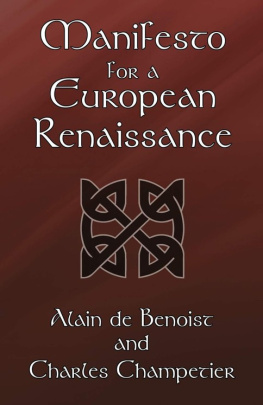Editors Foreword
I am extremely pleased that Arktos has been given the opportunity to produce a third edition of Dr. Sunics book Against Democracy and Equality . I can still remember when I came across a copy of the first edition in the 1990s, when I was in my mid-twenties. It was a crucial experience for me. By then, I had figured out that I was of the Right, but I had not yet found an active segment of the Right that I felt genuinely represented my own beliefs. Back then, the Internet had yet to develop into the remarkable resource that it is today, and for someone living in the United States, there was scant information available on the European New Right (ENR) available anywhere, outside of the pages of the obscure academic journal Telos . What little I had heard about the ENR was intriguing, however, and I was excited to find a copy of Toms book courtesy of my local university library so that I could learn something about it.
I was not disappointed. It opened up a whole new world for me, a world in which the ideas of the true Right, as Julius Evola called it, were still being passionately defended and discussed at a high intellectual and cultural level. I was simultaneously overjoyed that such a thing existed, and disappointed since I knew there was nothing like it in America. More than a decade later, while the situation is more hopeful, there is still no American New Right, although at least some efforts are being made in that direction, notably through Greg Johnsons Counter-Currents (www.counter-currents.com), as well as Toms own endeavours with The Occidental Observer (www.theoccidentalobserver.net) and with his friend Kevin MacDonald. I can also say that the work we are doing in Arktos, at least for me, is largely a result of the inspiration I received when I first read this book. We are trying to ensure that future English-speaking readers who are sympathetic to the New Right, and related schools, will have more than just a single book with which to educate themselves. A few other books not many on the New Right have been published since this one first appeared, most notably Michael OMearas outstanding New Culture, New Right , but Toms book remains an unparalleled introduction to the basic figures and themes with which the ENR is concerned.
When reading this book, it should be remembered that it was initially written while the Cold War was still going on, and when Soviet Communism remained a very real presence in the daily lives of everyone in the West. While I am certain that if Tom were to rewrite it today, he would spend a lot less space discussing Communism, it is still valuable to read his thoughts on it, and not just from a historical standpoint. While the world is no longer locked in a Manichean conflict between Communism and liberal democracy, with each side prepared to incinerate the other at a moments notice, the worldview which informed Communism is still very much alive and well throughout the world, albeit in a much more subtle form. Just as the former Soviet apparatchiks managed to reinvent themselves as good capitalists, the former Marxist radicals of the West from the 1960s and 70s have traded in their bombs and their mimeographed manifestoes for the more respectable garb of academia, the media and the corridors of financial and political power. In this guise, they continue to exert influence on society, especially over misguided young idealists who, to quote Evola, lack proper referents when it comes to solving the political and cultural problems of the West. One only needs to consider how completely American and Western European society have been transformed over the last half-century to realise that the danger today is not from tanks or ICBMs, but rather emanates from the mouths, the keyboards, and the bank accounts of some of the wealthiest and most influential people in the world, those who have never given up the dream of realising their peculiar form of universal equality and sameness. And even Communism in its original form has yet to give up the ghost. As I write, here in India, armed Communist insurgencies are ongoing all over Asia, and it is not at all unusual in some of the poorer parts of India to come across the hammer-and-sickle or portraits of Marx, Lenin, and Stalin. In nearby West Bengal, the Maoists regularly carry out targeted assassinations ironically, not against the wealthy, but of their own rivals in the more established Communist Party, which has gained power there through elections. While it has suffered many setbacks around the world, Communism is far from finished, which is not surprising since, as Tom demonstrates in this book, it will always linger in the shadows so long as the ideology of liberal democracy remains pre-eminent.
Th is volume is not simply a reprint of the earlier edition. Th e book has been completely re-edited and re-formatted. Tom has contributed a new Preface for this edition, and we have also included the Preface that Alain de Benoist wrote for the Croatian edition in 2009. Lastly, we have added de Benoists and Charles Champetiers Manifesto for a European Renaissance , which was written to summarise the philosophical standpoint of the ENR at the turn of the millennium, as an Appendix.
All quotations from texts cited in other languages were translated by the author himself, unless references to existing translations are made in the accompanying footnotes. In most cases I did not feel that I had anything to add to the existing text, but in a few cases I have added explanatory notes where they were needed. Th ey are marked to distinguish them from Toms own footnotes.
John B. Morgan IV
Mumbai, India
31 January 2011
Preface to the Th ird Edition
A dding an additional preface to already existing prefaces may look and read strangely. More or less everything was already said about the purpose of this book in the previous editions and previous prefaces and introductions. I would like to draw the attention of my readers, however, to Alain de Benoists new introduction, which I have translated into English, and which sheds some light on a whole set of etymological and conceptual problems, in this third edition now published by Arktos.
This book was first written in 1988 as my doctoral dissertation. It was supposed to be a small summary and an even smaller introduction to what one could roughly describe as the enormous cultural heritage of Western Right-wing thought (whatever West or Right-wing may mean today), of which the philosopher Alain de Benoist is a unique modern representative. The reader must be advised, however, to subsequently read his classic, encyclopaedic and thick volume Vu de Droite , as well as dozens of his other books and hundreds of his essays, in order to better grasp the main thesis of my book. In short, I am only trying to summarise Alain de Benoists ideas as well as those of similar scholars, who for some clumsy, often bizarre reasons have been dubbed by their detractors as Right wingers or New Rightists! Therefore, for want of a better term, I will also stick to the expression the New Right. However, the ideas that stand behind this awkward, voguish, derisive, often meaningless and evocative label the New Right are neither on the Left nor on the Right. The so-called European New Right can be more accurately described as a school of thought, a cultural group comprising a substantial number of philosophers, artists, sociobiologists, poets, writers, and scientists whose main subject of research and interest is the critique of egalitarianism and the critique of the idea of progress including the critique of their modern, postmodern, secular and mundane offshoots.

